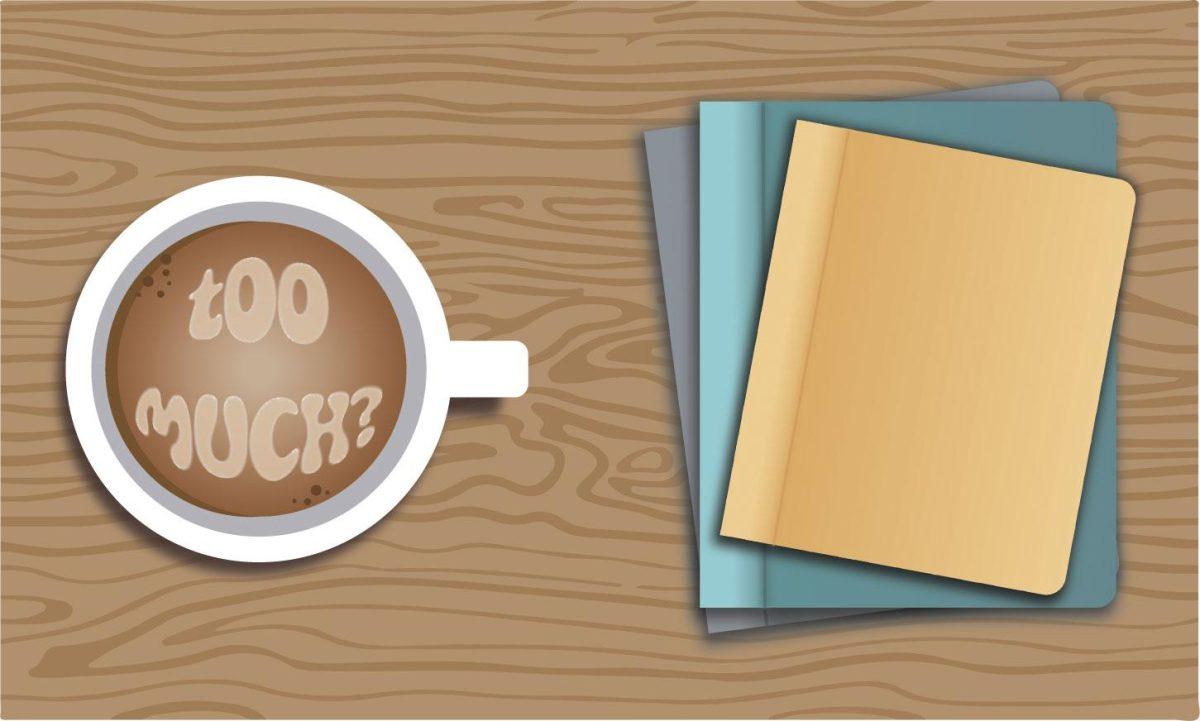Every morning, the Panera Bread in Patrick F. Taylor Hall brews over 20 gallons of coffee.
Tiffany Myers, the general manager at the Panera Bread, sees the same students every morning purchasing a cup to get themselves through their day.
“We brew about twelve gallons of just iced coffee alone every day,” Myers said.
International studies sophomore Nicole Mann drinks four cups of coffee a day — two in the morning and two in the afternoon.
Mann started drinking coffee at 13 years old, and since her junior year of high school, she began regularly drinking coffee twice a day, saying it has become part of her schedule.
“During midterm week, I’ll drink a lot more coffee, which is definitely unhealthy,” said Mann, who would sometimes drink up to eight to 10 cups a day. “I was just consistently drinking more and more every few hours.”
She says she often drinks black coffee, as it’s the cheapest option.
“I definitely drink for the effect, it keeps you up and keeps your blood pumping and your adrenaline going with all the caffeine you have,” Mann said. “Being cooped up in the dorm wore me out so much that I drank more coffee.”
A 2019 study done by Elsevier, a science-based publishing company, observed caffeine intake among college students from five universities, including LSU.
The study provided multiple reasons students consume caffeine:
-
Seventy-nine percent used caffeine to feel awake
-
Thirty-one used caffeine to improve concentration
-
Twenty-seven percent said it helped increase their physical energy
-
Nine percent drank caffeine to alleviate stress
Overall, the study found that the main reason students drank caffeine was to improve mood and performance.
Architecture freshman Amelia Blackmon has found herself drinking more coffee and energy drinks the past few months, attributing this increase to working at a coffee shop and having time-consuming classes. Blackmon estimates she has doubled her caffeine intake while in college.
Blackmon drinks around two cups of coffee a day. She started drinking coffee in seventh grade, and now drinks all types — black coffee, frappes, lattes — even substituting a cup of coffee for a Monster Energy drink some days.
Blackmon works at Coffee Joy, a café near campus, where she sees many LSU students and professors regularly come in for coffee. Working there has also enabled her to get free coffee, which has helped make the habit less costly.
“It gives me energy, and I’m very sleepy all the time, so I need it to get through my class or a late night project,” Blackmon said.
Denise Holston, an assistant professor in the LSU School of Nutrition and Food Sciences and registered dietician nutritionist, was not surprised by the amount of coffee students reportedly drink in a day, or the amount coffee shops like Panera Bread brew every morning.
“Students have a lot on their plate: they’re studying, they’re trying to make good grades, most students have jobs and families and need a pick-me-up in the morning,” Holston said.
The Food and Drug Administration recommends consuming no more than 400 milligrams of caffeine a day, about four or five cups of coffee. However, some people have different levels of tolerance for caffeine since some can metabolize it faster.
While many people who drink coffee have a built-up tolerance that enables them to drink more, others can experience nervousness, anxiousness and fatigue. People who drink too much coffee can experience symptoms such as jitters, insomnia, fast heart rate, nausea and headaches.
Holston also says that while black coffee is better in terms of calories, it still has about the same amount of caffeine as others would.
Wildlife ecology freshman Ariana Tashakkori is a regular coffee drinker, drinking two cups every day. Tashakkori originally drank Monster Energy drinks in high school, but eventually switched to coffee. She now drinks it first thing in the morning with breakfast, either brewing it herself or buying a cup at CC’s Coffee House. Despite the cost, Tashakkori continues to drink coffee for its effects.
“It’s expensive, even if you get a big gallon of cold brew from the grocery store, that’s a lot of money,” Tashakkori said. “At this point, I’m dependent on it. I can’t stop drinking it or else I’ll get headaches.”
Holston strongly advises against energy drinks, especially Bang energy drinks, which have high caffeine amounts. While Bang has zero calories and no carbohydrates, it has double the amount of caffeine compared to a Monster energy drink, and it’s more potent, meaning people who drink it can feel the effects much quicker.
Holston also warns students of the dangers of mixing alcohol with Bang energy drinks. According to Holston, the high caffeine count can mask the effects of alcohol, so students may not feel significant effects and believe they are able to drink more.
Holston believes that drinking coffee can be a healthy habit until it turns into overconsumption or is used to replace sleep.
“Even though you’ve been up all night caffeinated to study, that doesn’t necessarily mean you’re going to do great on the test, because you’re not going to be able to function well mentally,” Holston said.





